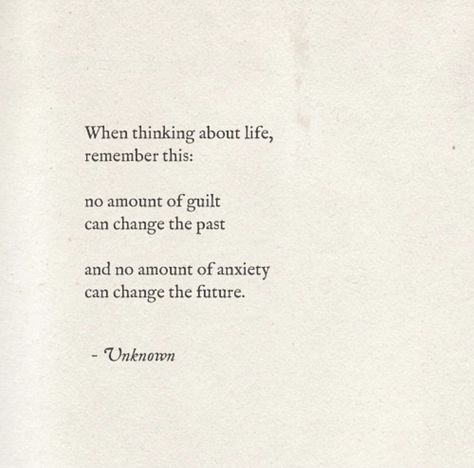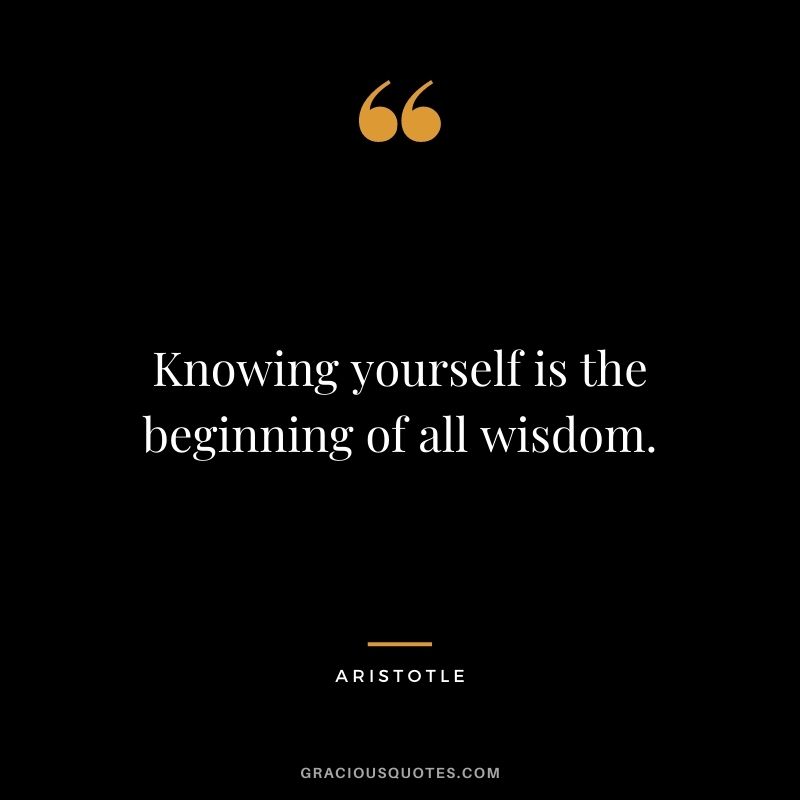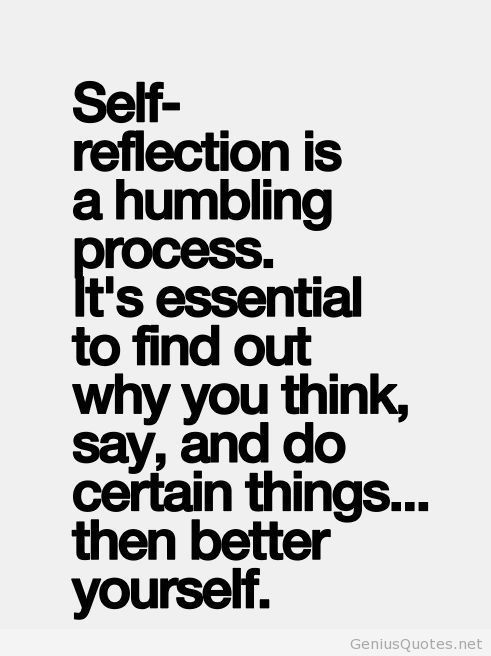
Introspection definition in psychology means examining and analyzing your thoughts, feelings, emotions, psychological experiences, and mental processes. It involves giving yourself some time and space for self-reflection. This activity is called self-analysis. To learn new things, you must first understand them and to learn them we need to turn inwards. You can use introspection to help you learn something new about yourself which propels you into self-developing specifically the development of psychology within yourself.
The practice of introspection is also a form of experimenting towards self-observation as it raises awareness of our mental experiences and what we feel and think.
Self-reflection or introspection goes hand in hand with meditation and provides us with a conscious experience.
It does not mean we are judging ourselves by overthinking or obsessing over our personality traits but simply means we are just observing and staying curious as to why we think and feel the way we do.
The term introspection can be used to describe both an informal reflection process and a more formalized experimental approach that was used early on in psychology’s history. (verywellmind.com)
Note – Introspection: Examination of internal self
Extrospection: an examination of what is external to self (introspection opposite)
Retrospection: Examining and reviewing the past
Relationship between Introspection and Mindfulness Meditation
Introspection is a huge element that forms part of meditation or mindfulness practice. Meditation can almost be seen as the vessel towards reaching a higher state of awareness, presence, and connection to your internal and mental world.
The role of introspection when meditating can help us become aware of our thoughts and feelings and develop more self-awareness. It’s often said that we think with our heads but feel with our hearts, so it makes sense to try and understand both sides of this relationship.
The word “meditation” comes from the Latin meditatio which means “to think deeply or reflect”. It translates into English as “thinking within”. Meditation is not a mental activity but rather a state of mind where one is fully present, aware, and accepting of what one experiences. It is a process of self-discovery through inner exploration, thought, and reflection.
Meditation helps individuals with stress and anxiety. It can also help them find a sense of spirituality and some studies have shown that it can help with health issues both mental and physical ranging from depression and cancer. You will likely be happier, more balanced, and attract more positive people into life. People may even question what you’re doing to bring about such changes.
Meditation is a process of focusing your mind on something positive. You’ll be able to focus your thoughts on things that make you happy. This practice helps you think more positively and therefore allows you to attract more positivity and presence into your life.
Meditation is one of these most effective introspection tools out there because it not only gives you time to spend with yourself but also allows you to tap into your subconscious mind so that you can tap into a conscious experience of thinking. As a result of this, you’ll have a greater sense of what you are, but more importantly, you’ll have a sense of self-awareness that can help you succeed at virtually every aspect of your daily life. More specifically you’ll start noticing some truly unique benefits that come along with this type of introspective meditation practice.
Meditation helps you become more aware of yourself and accept yourself as you are. You’ll feel much better about yourself when you’re relaxed and calm. You’ll find that you’re more successful than you ever thought possible.
How to meditate and introspect
What would this introspective access practically look like? Well, it looks and feels different to everyone – there is no right or wrong way when it comes to meditating – everybody reaches a meditative state in their way.
The most simple example would be sitting in stillness as a daily practice to reflect on your thoughts. Sitting alone in silence for 10 – 20 minutes at a time brings about a great opportunity for self-reflection and will allow you to look at yourself, your lifestyle, and where you are in life.
Regular practice of meditation tends to lead to psychological processes changes over time. If practiced with the optimal mental attitude, meditation may be a powerful method to reach this higher conscious state of being.
An “I want” mentality won’t get you far when trying to achieve something new. Instead, focus on having an open mind during meditation.
Openness helps develop insights. As we go through life, some unconscious material may sometimes rise into our conscious minds. It might be an interesting experience. During meditation, we don’t explicitly focus on exploring our psychological drives, motives, and central themes; however, practicing an open attitude may help us gain insight into ourselves.
The next step would then be to change our attitudes towards certain behaviors.
Introspection and meditation can help us become aware of our thoughts and feelings and develop more self-awareness. It’s often said that we think with our heads but feel with our hearts, so it makes sense to try and understand both sides of this relationship.
Many beneficial effects of mindfulness skills and conclusions can be drawn from introspection through meditating such as:
- You will be able to identify your habits and beliefs and how you might want to change them.
- You will be able to see how meditation helps you better understand yourself.
- You will be able to recognize obstacles and challenges that get in your way of what you might want to achieve.
- You will be able to increase your mental strength and confidence by truly knowing what you want.
- You will be able to control your journey of life as well as the direction it is taking and feel empowered as you do it.
- You will be able to realize who it is that you truly are.
- Meditation helps you focus your mind and get rid of distractions. You’ll be more productive and happier.
- It can even elevate our sensory experiences as well as our tactile experiences
Meditation helps me become more aware and spiritually oriented. I am now more conscious of my surroundings and the people around me. My senses are sharper and I’m less likely to be distracted by things that aren’t important. I’ve learned to appreciate what I do have and value it. I’ve also discovered that I have a lot more control over my thoughts than I thought. I’m not always thinking about negative things and I’m not letting them get to me anymore. I’m calmer and happier.
People who have experienced something usually know what they’re talking about. However, this does not mean that they have learned anything from their experiences nor do they use those experiences to improve themselves or others. Introspection allows us to see where we are in life – we reflect on these past experiences and then we bring the lessons the experiences have taught us into the present moment.
We can stop worrying over the small stuff and learn to prioritize what is important. We can look back at that knowledge and experience and become more aware of the negative patterns in our life so we can learn from them and change for the future. This is better known as retrospection and by becoming aware of these things we can learn to let go of the past and move forward. When we choose not to learn from our mistakes we get stuck in the past.
Benefits of Introspection
While introspection has fallen out of favor as a experimental psychology research technique, there are many potential benefits to this sort of levels of consiousness, self-reflection and self-analysis.
Introspection can be a great source of personal knowledge
The process provides knowledge that is not possible in any other way
It can help people make connections between different experiences and responses
Source: verywellmind.com
What Is the Importance of Introspection?
Introspection is an essential part of self-improvement because it helps us understand ourselves better and can develop baseline mindfulness skills.
We think more than 50, 000 times each day, of which more than 50% are negative and almost every thought is a repeat from yesterday.
If you don’t take the time and energy to focus on the positive thoughts within yourself on an individual level by reflecting on them, then you won’t be able to cultivate new habits for personal development.
Understanding yourself better enables you to gain control over your life and focus on fulfilling activities rather than distracting ones.
So with all that said and done, there are many ways we can reach this state of self-observation without conventionally meditating.
All it takes is to take a few moments and allow yourself to observe what is happening in your mind. Notice and become aware of what you are thinking and write this down. Then write down anything else that comes up for you and is relevant to process and make sense of these thoughts. Introspection has a lot to do about questioning yourself and challenging your thoughts to know what you would like to change or deal with.
Below are a few prompts that might be helpful to get your internal conversation going.
Prompts and questions for introspection
Is there anything else I could be doing instead to use more time more efficiently?
Is there something I’m assuming or taking for granted without thinking through?
Is there anything unhealthy about my approach?
Do I live by my values and stay true to my beliefs?
Do I feel energized when I wake up each morning and feel prepared for challenges ahead?
Do I think negatively before falling asleep?
Are there any relationship issues I need to address?
Are there any physical health issues that need attention?
Are there things outside of my control that is stressing me out?
Are these goals helping me achieve success?
What kind of person am I?
My biggest concern for the future is…
Would I be doing anything differently if I knew this was going to be the last time I’d ever see someone again?
What scares me most?
Is there anything I need to release?
If not now, when? Will there ever be a right time?
What matters in my life and what should I prioritize?
What am I doing for myself?
What makes me special or unique?
What did I accomplish recently that was worthwhile?
Did I help somebody feel better by doing something nice for them?
What did I give up on?
Have I been in my comfort zone for too long?
What act of kindness or joy can I give to somebody today.
What if I knew I would die tomorrow?
What do I need to change about myself?
Love or Be Loved? Which one matters most?
How many people could I count on if something bad happened to them?
Who is the most important person who influenced my life?
What would I like to achieve?
What is life asking of me?
Which is worse: failing or never trying?
Does it matter what others think about me?
What will I be remembered for most when all is said and done?
So in a nutshell, if there is one simple way you want to create positive change in your life it is through the act of introspection. It is essential to find out why you think, say, and do certain things. This is the only way we learn about and from ourselves and this is where the exciting journey of self-development starts. So that you can live your most abundant self and constantly grow into who you want to be.
Quotes about introspection





